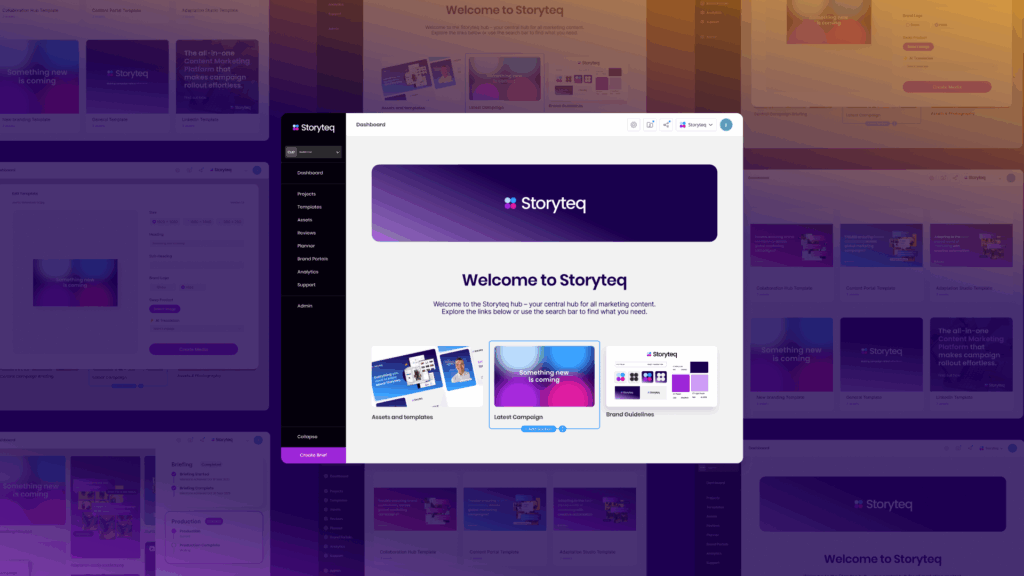When selecting the best AI tool for content creation, the answer depends on your specific needs and goals. The ideal solution combines robust automation capabilities with customization features that maintain brand consistency. The most effective AI content tools offer multi-format asset generation, personalization at scale, and seamless workflow integration. Rather than seeking a single “best” tool, focus on finding AI solutions that balance creative flexibility with brand governance, automate repetitive tasks, and integrate with your existing marketing technology stack to drive measurable results.
What makes an AI solution effective for content creation?
An effective AI solution for content creation balances automation power with creative control. The most valuable tools offer comprehensive automation capabilities that handle repetitive tasks while maintaining brand governance and allowing for personalization.
Key evaluation criteria for determining effectiveness include:
- Content scalability features that allow you to create multiple variations from a single template
- Personalization capabilities that enable targeted content for different audience segments
- Brand consistency controls that maintain visual identity across all outputs
- Multi-format support for various content types (images, videos, banners, etc.)
- Integration flexibility with existing marketing technology systems
AI solutions should simplify complex workflows without sacrificing quality. Look for platforms that offer dynamic templates where elements can be swapped while maintaining design integrity. The most effective tools provide a balance between creative freedom and brand governance, allowing teams to produce more content without getting bogged down in technical details.
Enterprise marketing teams especially benefit from AI tools that provide centralized asset management and streamlined approval processes, creating a unified content ecosystem rather than isolated production capabilities.
How does AI transform the content creation process?
AI transforms content creation by automating repetitive tasks, enabling personalization at scale, and freeing creative teams to focus on strategic work. The most significant impact comes from workflow streamlining where AI handles time-consuming production elements.
Key transformations in the content creation process include:
- Automating technical adaptations like resizing, formatting, and localizing content
- Reducing production cycles from weeks to hours or even minutes
- Enabling mass personalization without proportional increases in workload
- Centralizing feedback and approval processes to eliminate communication bottlenecks
- Maintaining consistent quality across high-volume content production
While generative AI can help with initial ideation (going from zero to one), post-production AI often delivers more immediate value by handling the scaling aspects of content creation. This shift allows designers and creatives to spend more time on concept development and less on tedious adaptations.
AI-powered platforms also enhance collaboration between teams by creating centralized systems where marketers, designers, and stakeholders can work together more efficiently. This collaborative approach ensures faster turnaround times and better alignment between creative vision and marketing objectives.
What capabilities should you look for in content automation platforms?
When evaluating content automation platforms, prioritize solutions offering comprehensive asset generation, robust brand governance, and streamlined workflow management. The most valuable platforms provide multi-format capabilities that handle various content types within a single ecosystem.
Essential capabilities to look for include:
- Dynamic template systems that allow content personalization while maintaining brand consistency
- Multi-channel output support (social media, web, print, video, etc.)
- Brand governance tools that enforce visual identity standards
- Approval workflow automation to streamline review processes
- Analytics capabilities that measure content performance
- Integration with distribution channels for seamless content deployment
Look for platforms that offer “full automation” across all formats and channels to keep workflows streamlined. The ability to batch create content from spreadsheets or directly within the platform allows for launching multichannel campaigns efficiently.
Advanced platforms also offer AI-powered performance tracking and optimization, providing insights on which creative assets perform best and recommendations for improvements. This data-driven approach helps marketing teams make informed decisions about content strategy and resource allocation.
Remember that the goal isn’t just to create more content but to create better, more effective content that resonates with your audience while maintaining brand consistency across all touchpoints. Learn more about effective content automation platforms that can help you achieve these goals.
How can enterprises scale content production with AI?
Enterprises can scale content production with AI by implementing centralized platforms that automate adaptations while maintaining quality and brand consistency. The key is establishing modular campaign structures that allow for efficient personalization across markets and channels.
Effective scaling strategies include:
- Creating master templates that can be dynamically adapted for different markets, languages, and formats
- Implementing global-to-local workflows where central teams create templates that regional teams can customize
- Utilizing data feeds to automatically populate templates with relevant content for different audience segments
- Establishing clear brand governance systems that maintain consistency while enabling local flexibility
- Developing measurement frameworks to track ROI from automated content systems
For global enterprises, the ability to easily localize content while maintaining brand integrity is particularly valuable. AI-powered platforms can automatically adjust layouts for different languages, adapt cultural references, and ensure compliance with regional regulations.
Another critical aspect of scaling is the ability to repurpose content across channels. Instead of creating separate assets for each channel, AI can help transform a single piece of content into multiple formats, maximizing the return on creative investment while ensuring consistent messaging.
Successful implementation requires balancing centralized control with local flexibility, giving teams the tools to create on-brand content without bottlenecks or extensive manual intervention.
What questions should you ask when selecting an AI content solution?
When evaluating AI content solutions, ask targeted questions about implementation requirements, customization options, and integration capabilities. Focus on understanding the practical implementation process and how the solution will fit into your existing workflows.
Essential questions to ask include:
- How does the platform integrate with our existing martech stack and creative tools?
- What is the learning curve for different user types (designers, marketers, local teams)?
- How does the platform handle brand governance and compliance?
- What level of customization is available for templates and workflows?
- What technical support and training resources are provided during implementation?
- How does the platform measure and report on content performance?
- What is the process for scaling the solution as our needs grow?
Beyond these technical considerations, evaluate the vendor’s expertise in your specific industry and their understanding of your content challenges. The best partners will provide not just technology but strategic guidance on optimizing your content operations.
Consider requesting a free trial or demonstration with your actual content to see how the platform performs with your specific use cases. This hands-on evaluation can reveal practical considerations that might not be apparent from feature lists alone.
Finally, speak with existing customers in similar industries to understand their experience with both the technology and the support provided by the vendor. Their insights can help you anticipate challenges and set realistic expectations for implementation and results.
At Storyteq, we understand these challenges firsthand. Our AI-enabled platforms are designed to help global brands streamline creative production and content management, allowing you to produce personalized, on-brand content at scale. We’d be happy to discuss how our solutions might address your specific content automation needs.



